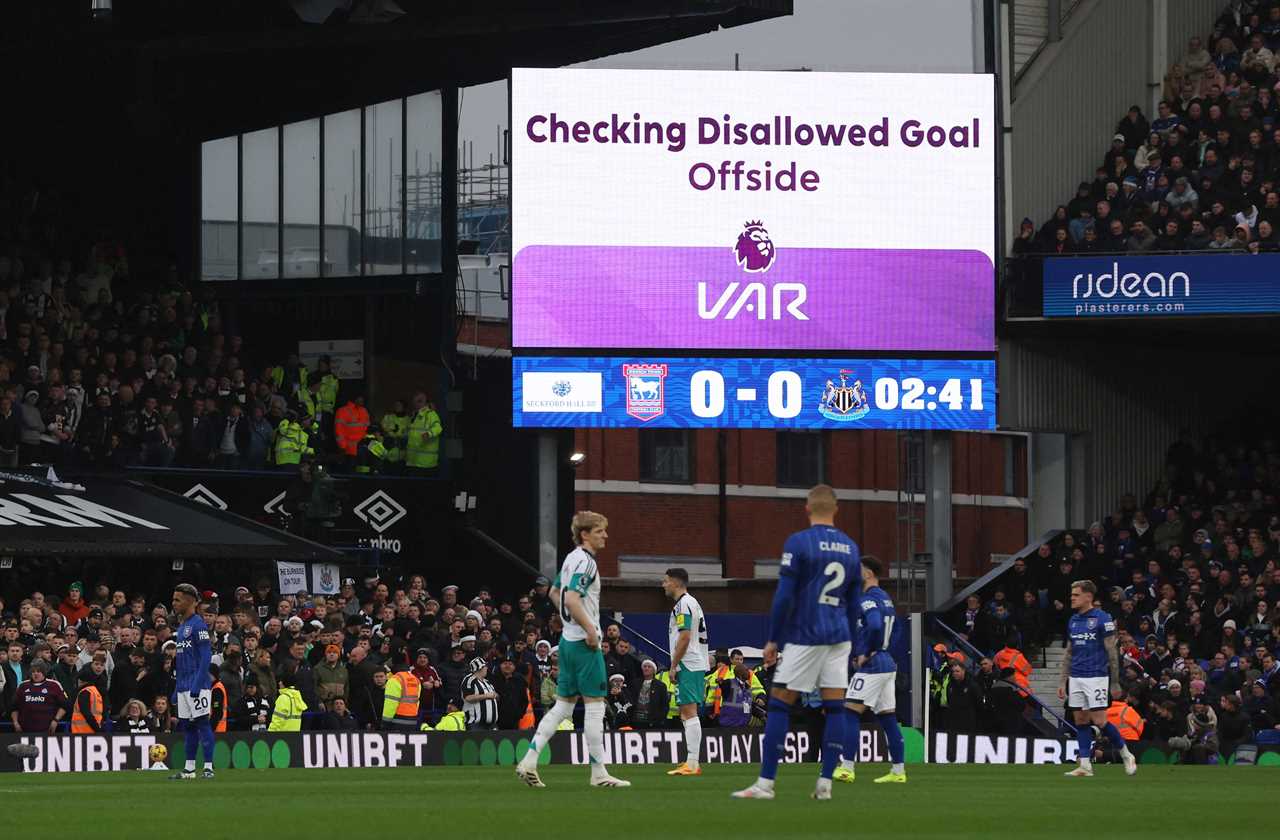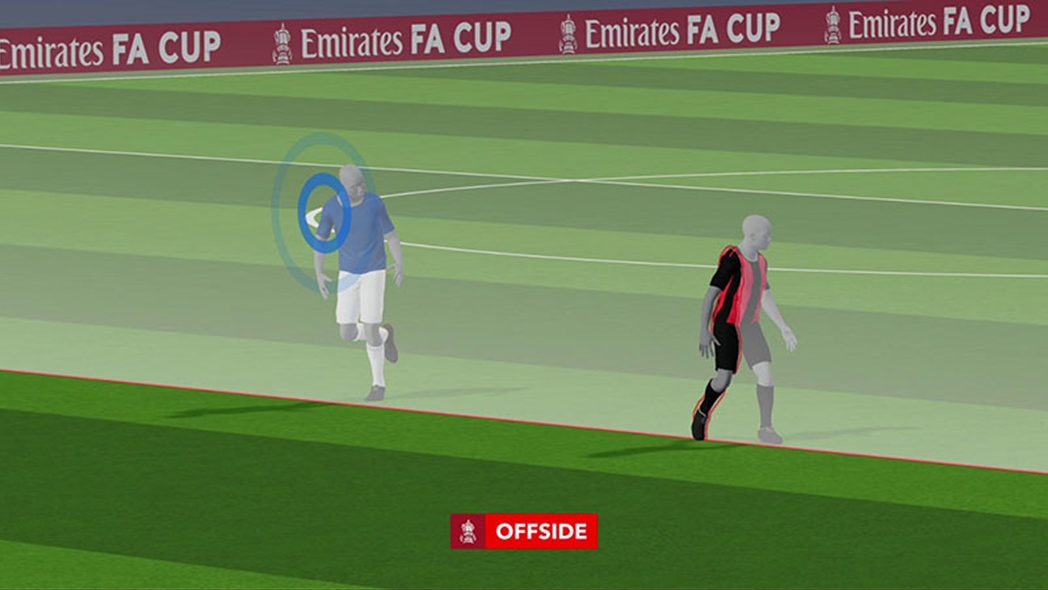
New Technology to Transform Offside Decisions
The Premier League is gearing up to implement semi-automated offside technology (SAOT) for the remaining seven rounds of the season, with the first match scheduled for April 12. This advancement aims to refine the accuracy and speed of offside calls, addressing long-standing challenges in football officiating.
Behind the Scenes: Development and Delays
Club executives gave the green light for the introduction of SAOT last summer, originally planning a debut in autumn. However, concerns regarding the system's precision led to a postponement. The technology, developed by US-based Genius Sport, employs up to 28 specialized cameras per match, tracking over 10,000 data points for each player through a method known as "mesh tracking."
Initial Trials and Mixed Reactions
The first application of SAOT occurred during seven of the eight FA Cup fifth-round matches. Despite its potential, a notable incident involved Bournemouth defender Milos Kerkez's goal against Wolves being disallowed after an eight-minute review, prompting cautious optimism among Premier League officials. This example highlighted that, despite automation, human oversight remains essential in certain situations.
Positive Feedback from Recent Games
In contrast to earlier concerns, the recent FA Cup quarter-final matches proceeded smoothly without any significant issues, bolstering confidence in the new system. League authorities reiterated their support, emphasizing that SAOT upholds the integrity of the VAR process while making offside decisions more consistent and timely.

Efficiency Gains on the Horizon
Tony Scholes, the Premier League’s chief football officer, expressed optimism that SAOT would streamline offside判断, potentially reducing decision-making time by over 30 seconds per incident. Additionally, ongoing collaborations with FIFA aim to enhance the system further, ensuring automatic signals for clear offside breaches and minimizing the reliance on assistant referees' manual signals.
First Premier League Match to Feature SAOT
The inaugural Premier League match utilizing SAOT will see Manchester City take on Crystal Palace at the Etihad Stadium on April 12. This game marks a significant milestone in football technology, as the league continues to embrace innovations that support fair play and accuracy in officiating.
Official Statement on Implementation
A full statement from the Premier League outlined the benefits of SAOT: "Semi-automated offside technology automates key elements of the offside decision-making process to support the video assistant referee (VAR). It provides more efficient placement of the virtual offside line, using optical player tracking, and generates virtual graphics to ensure an enhanced in-stadium and broadcast experience for fans."
The statement further assured that the technology maintains the process's integrity while improving the speed and consistency of offside rulings. The Premier League collaborated with PGMOL and Genius Sports to develop and refine the SAOT system, ensuring it meets the high standards required for top-tier football.
Looking Ahead
The introduction of SAOT represents a significant step forward in the evolution of football officiating. By integrating advanced technology with traditional VAR processes, the Premier League aims to provide a more accurate and efficient system for determining offsides. Fans can look forward to a smoother viewing experience, both in stadiums and through broadcasts, as the league continues to uphold the integrity and fairness of the beautiful game.
Stay Updated on the Latest Developments
As this technology rolls out, further updates and refinements are expected. Football enthusiasts and casual fans alike will be keen to observe how SAOT impacts the flow of the game and the accuracy of officiating decisions. The Premier League's commitment to embracing innovation underscores its dedication to maintaining high standards and ensuring an engaging experience for all supporters.
Frequently Asked Questions
What importance do you place on a player's diet or nutrition?
Nutrition is an integral component of a football player's performance and recovery. For energy, muscle repair and general health, a balanced diet with a mix of carbohydrates and proteins, fats and vitamins is essential. Dehydration can also significantly affect physical performance. Timing of meals and specific nutrition strategies can vary depending on training and match schedules, and it is often beneficial to consult with a sports nutritionist to develop personalized dietary plans.
What type of physical conditioning would be best for a soccer player?
A football player's conditioning program should be well-rounded, focusing on all aspects. Included in this are aerobic exercises that improve endurance, sprint training to improve speed, agility and power, as well as flexibility routines for injury prevention and recovery. Sport-specific drills, which simulate match conditions, are also beneficial for preparing your body to the physical demands that football places on it. The program can be tailored to the needs of each person by working with an accredited fitness professional or coach.
How can I improve the technique of my football?
It is important to practice your fundamentals and improve your technique. It is essential to regularly perform drills which improve ball control, accuracy passing and precise shooting. Your technique will be greatly improved by spending time on your weaker leg and working to improve your balance and coordination. You can improve your technique by observing professional footballers. Analyzing their positions, movements, and decisions.
What are the fundamental skills necessary to play great soccer?
A player who wants to play great football must have a combination technical, tactic, physical and mental skills. Technical skills include ball control, dribbling, passing, and shooting. Tactical knowledge encompasses understanding of the game, such as positioning, movement, and decision-making. The performance of a player is dependent on physical attributes, such as strength, endurance, and speed. Mental toughness, focus and the ability of remaining calm under pressure is crucial for maintaining performance during a match.
What is the best way to defend yourself against an offensive team that's strong?
To defend against a powerful offensive team, you need a strategic and disciplined approach. A disciplined marking system and an organized defensive line are key tactics. Limiting the scoring chances of opposing players by forcing them to the sidelines instead of the middle can be done. When possession is lost, it's important that defenders communicate effectively and quickly switch to defense. The counter-attacking strategy can then be employed to exploit any openings that may occur as the offensive team commits its players forward.
Statistics
- Defensive units that practice coordinated drills together at least twice a week concede 18% fewer goals in match play.
- Studying match footage for at least 4 hours a week can lead to a 10% improvement in a player's tactical awareness on the field.
- Teams that prioritize teamwork in training sessions increase their passing accuracy by an average of 15% in competitive matches.
- A consistent mental focus regimen, including visualization techniques, can enhance player concentration levels by up to 20% during matches.
- Goalkeepers who engage in specialized reaction-time training reduce their goals-conceded tally by an average of 25% over a season.
External Links
How To
How To Thrive as A Midfielder In Soccer
To be a successful midfielder, you need to have versatility and vision. Improving your ball handling skills is fundamental, so consistently work on your dribbling and ball protection. You can improve your spatial awareness by learning to play in tight spaces. You must regularly work at both short and long range distribution. To maintain a constant work rate, improve your conditioning. Finaly, learn the styles of playmaking of leading midfielders in order to determine how they manage the tempo of a match.
 CricketBoxingFormula 1GolfHorse RacingPremier LeagueTennisPrivacy PolicyTerms And Conditions
CricketBoxingFormula 1GolfHorse RacingPremier LeagueTennisPrivacy PolicyTerms And Conditions
